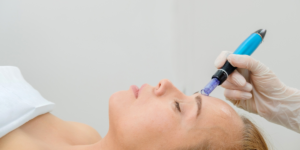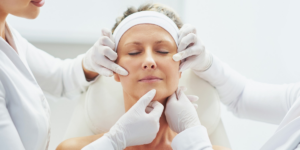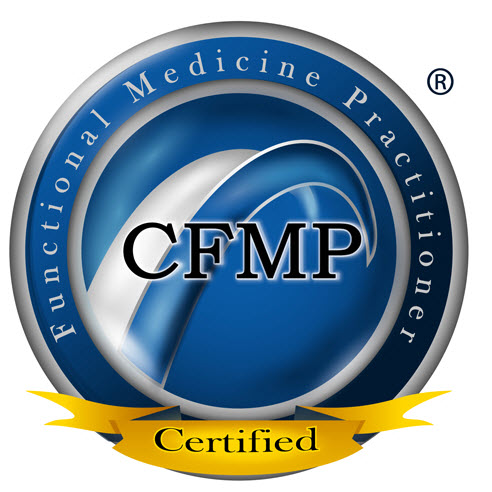
Reignite the Spark: How Hormones, Habits, and Peptides Can Help Restore Low Libido
Table of Contents
- When Intimacy Fades, Everything Feels Off
- Why Libido Changes (It’s Not Just in Your Head)
- Rebuilding Intimacy: 4 Habits That Support Desire
- What the Research Says: Libido, Hormones, and Aging
- Medical Support for Restoring Libido
- Extra Strategies That Make a Difference
- You’re Not Broken — You’re Biochemical
- Ready to Rebuild Your Connection?
- Prefer to Watch?
When Intimacy Fades, Everything Feels Off
It starts subtly.
You feel less connected. Less spontaneous. Less like yourself.
Desire fades into the background — not because you’ve fallen out of love, but because your body isn’t responding the way it used to.
At Balanced Aesthetics + Wellness in Atlanta, Georgia, we see this more often than you’d think. Low libido affects women and men across all life stages, but especially during midlife transitions like perimenopause, menopause, or times of high stress and fatigue.
And while society tends to treat this as a taboo topic, we don’t. Because intimacy is not a luxury — it’s foundational to your well-being.
Why Libido Changes (It’s Not Just in Your Head)
Contrary to common belief, low libido isn’t a sign of relationship trouble or aging alone. It’s a biological response to underlying imbalances. Let’s break down the main causes:
-
Hormonal Shifts
In women, declining estrogen and testosterone during perimenopause and menopause significantly affect sexual desire, vaginal lubrication, and responsiveness. For men, lower testosterone can lead to decreased drive and energy. -
Stress and Cortisol
Chronic stress elevates cortisol, the body’s primary stress hormone. Cortisol suppresses sex hormones and dampens libido. It also impacts sleep, mood, and metabolism — all of which influence intimacy. -
Poor Sleep
Sleep deprivation reduces both estrogen and testosterone production. It also affects mood and physical recovery, making closeness feel less appealing and more exhausting. -
Chronic Pain or Fatigue
When your body is in survival mode, desire takes a back seat. Pain, injury, or persistent fatigue all interfere with your capacity to enjoy or initiate intimacy. -
Emotional Disconnect
Physical intimacy and emotional connection are intertwined. As desire declines, so does touch, laughter, and spontaneity — creating a cycle of growing distance.
Rebuilding Intimacy: 4 Habits That Support Desire
Restoring libido doesn’t always begin in the bedroom. It begins with small, foundational shifts that impact your biology, chemistry, and connection.
-
Communicate Openly
Shame and silence shut down intimacy faster than anything else. Honest conversations with your partner (and your provider) open the door to healing. Letting your partner know what you’re experiencing — and that you want help — can create new closeness. -
Prioritize Sleep
Sleep is your hormonal reset button. Aim for 7–8 hours of quality rest to support natural testosterone and estrogen production. Bonus: it also boosts mood, reduces inflammation, and improves body confidence. -
Reduce Stress Regularly
Even 10–15 minutes of calming practices — like deep breathing, walking outdoors, or journaling — can lower cortisol and bring your nervous system out of survival mode and into restoration. -
Move Together
Physical activity releases endorphins, improves circulation, and builds body confidence. Couples who move together — whether it’s yoga, walking, or dancing — tend to report higher emotional and physical intimacy.
What the Research Says: Libido, Hormones, and Aging
- Cortisol reduces the body’s production of sex hormones like testosterone and estrogen
- Menopausal estrogen decline leads to dryness, discomfort, and decreased arousal
- Low testosterone in both men and women reduces libido, energy, and confidence
- Poor sleep is linked to significantly reduced sexual interest and function
These changes are real — and they’re measurable. But the good news is that they’re also modifiable with the right therapeutic support.
Medical Support for Restoring Libido
When lifestyle shifts aren’t enough, it’s time to address the underlying biology. That’s where hormone replacement and peptide therapy in Atlanta, Georgia come in.
Peptide Therapies for Intimacy
PT-141 (Bremelanotide)
- Known as the “libido peptide”
- Stimulates arousal through central nervous system pathways (not just blood flow)
- Works for both men and women
- Particularly helpful for low sexual desire disorder (HSDD)
Oxytocin
- Often called the “bonding hormone”
- Enhances emotional connection, affection, and trust
- Can be administered as a nasal spray or troche
- Supports relational intimacy beyond physical desire
These peptides don’t sedate or stimulate artificially — they amplify the body’s own signaling pathways to restore responsiveness naturally. That’s why peptide therapy in Atlanta, Georgia has become an increasingly popular choice for those seeking a holistic approach to restoring vitality and connection.
Hormone Replacement Therapy (HRT)
For women in perimenopause or menopause, low libido is often linked to estrogen, progesterone, or testosterone decline. HRT can help:
- Restore vaginal comfort and reduce dryness
- Improve energy, mood, and sleep quality
- Increase physical responsiveness and emotional stability
At Balanced Aesthetics + Wellness, our experts in hormone and peptide therapy in Atlanta, Georgia use pharmacy-grade hormones with precision dosing based on labs and symptoms — never a one-size-fits-all approach.
Extra Strategies That Make a Difference
In addition to therapy and lifestyle, here are three often-overlooked ways to support intimacy:
-
Reintroduce Novelty
Break the routine with new experiences — a new class, weekend trip, or a shared goal. Novelty creates new neural pathways and reignites interest. -
Practice Non-Sexual Touch
Simple gestures like hand-holding, cuddling, or longer hugs rebuild physical connection without pressure. -
Eat for Hormone Health
Nutrients like zinc, magnesium, and omega-3s play a role in testosterone and estrogen production. Pomegranate, dark chocolate, and leafy greens are great libido-friendly additions.
You’re Not Broken — You’re Biochemical
If you’re feeling disconnected from your body, your partner, or your desire — know this:
You’re not alone.
You’re not failing.
And you have options.
With the right combination of hormone support, lifestyle changes, and peptide therapy in Atlanta, Georgia, you can feel like yourself again — energized, connected, and confident in your body and your relationship.
Ready to Rebuild Your Connection?
Our clinical team specializes in restoring hormone balance and intimacy using advanced diagnostics, peptide therapies, and personalized protocols.
Book your Virtual Wellness Consult (insert actual booking link here)
Let’s start your healing journey together — from the inside out.
Prefer to Watch?
Catch Richelle’s full conversation on intimacy, hormones, and peptides here:
Watch the YouTube video now




















 Previous Post
Previous Post








